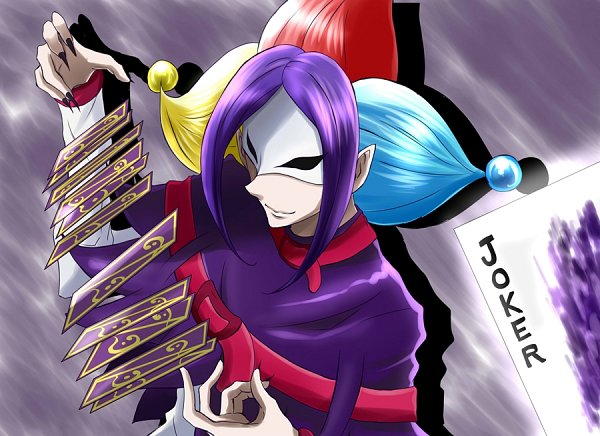Difference between revisions of "On Antagonists"
| Line 1: | Line 1: | ||
== On Antagonists and Threat. == | == On Antagonists and Threat. == | ||
| − | + | [[File:Antagonists.png]] | |
Radiant Heart MUSH, true to its source material, is very much a game about heroes overcoming impossible odds through the power of their heart, and of their emotions. This means, naturally, that ‘selling’ the threat of an antagonist is very important. It’s hard to feel like impossible odds are being overcome if the antagonist’s attacks aren’t ‘felt’, if their presence isn’t notable. | Radiant Heart MUSH, true to its source material, is very much a game about heroes overcoming impossible odds through the power of their heart, and of their emotions. This means, naturally, that ‘selling’ the threat of an antagonist is very important. It’s hard to feel like impossible odds are being overcome if the antagonist’s attacks aren’t ‘felt’, if their presence isn’t notable. | ||
Latest revision as of 01:16, 12 June 2023
On Antagonists and Threat.
Radiant Heart MUSH, true to its source material, is very much a game about heroes overcoming impossible odds through the power of their heart, and of their emotions. This means, naturally, that ‘selling’ the threat of an antagonist is very important. It’s hard to feel like impossible odds are being overcome if the antagonist’s attacks aren’t ‘felt’, if their presence isn’t notable.
---and that’s the name of the game. Being overcome. Antagonist players are more or less agreeing ahead of time to join the losing side of the battle. While this may not involve permanent defeat, and the Antagonist may have long periods during which they are ‘on top’ narratively, at the very least the end of the arc will involve them slinking home defeated, hard work undone.
Because of this, it is very important to Staff and to the health of the game itself that Antagonist players are treated with due respect and patience - particularly OOC. Keep the conflicts IC and realize that the Antagonist player is part of your narrative, not a competitive opponent you should seek to destroy completely at every twist and turn.
On the other side of the same coin, being an Antagonist is not carte blanche access to scene-steal. Being a good antagonist is all about your interaction with the protagonist players. In a healthy ‘hero/villain’ relationship, both will lift each other up - the heroes will lift the antagonist character up as a narrative threat, and by slowly overcoming that threat, they will be themselves lifted up in their struggle to defeat them. It’s a win/win scenario for all parties.
